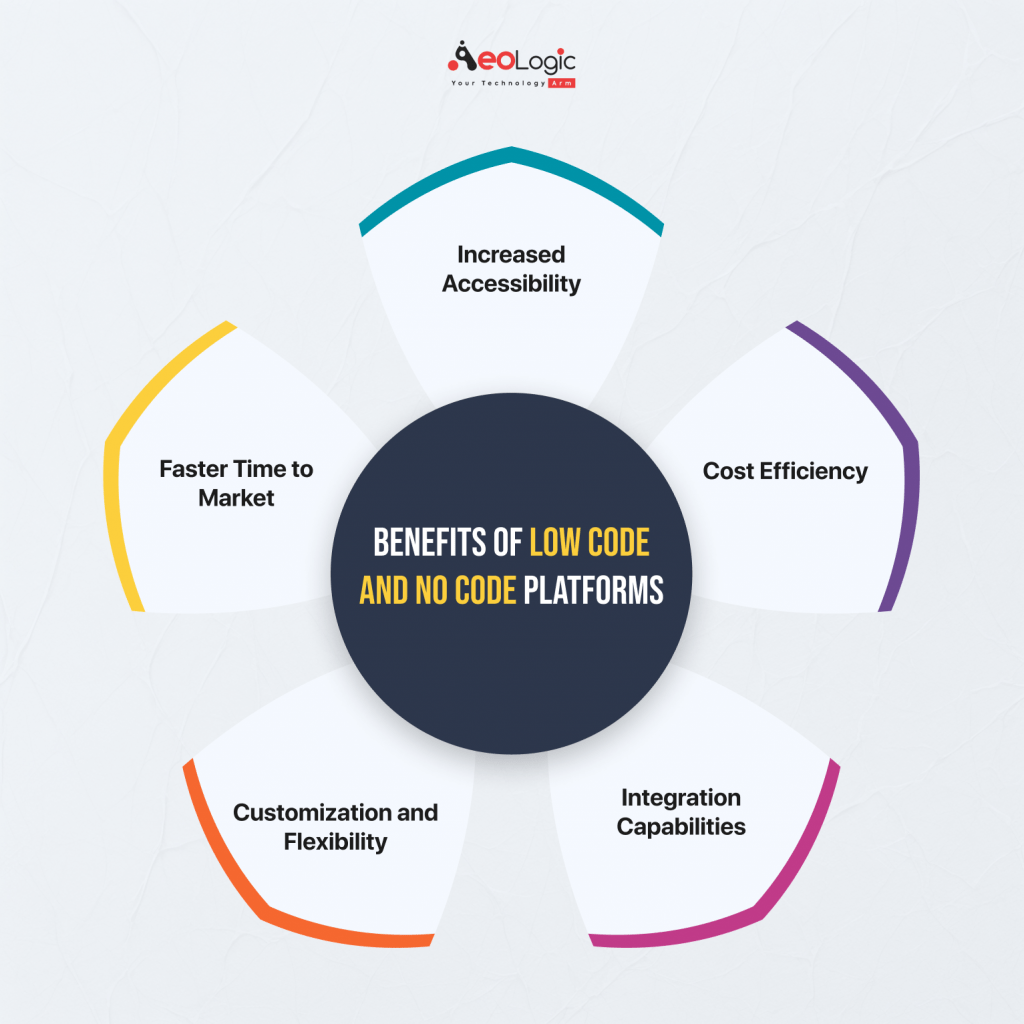Custom software development is a trend nowadays as every industry or organization is running their websites, applications, etc different software. This era of digital marketing and software development is a main aspect. The global custom software development market will be worth $146.18 billion in 2024. This is a compound annual growth rate (CAGR) of 22.5% from 2024 to 2030. The Global Custom Software Development Market size is expected to reach $85.9 billion by 2028, rising at a market growth of 20.3% CAGR during the forecast period. These numbers are too big and expect only positive growth in these numbers for the upcoming future.
Low-Code vs. No-Code Platforms: Best for Custom Software Development
There are various ways to develop custom software; two of them are famous: low-code and no-code platforms. Low-code and no-code platforms are both development platforms that use visual tools and drag-and-drop to help users create applications where both have their advantages and disadvantages too. To create and integrate apps on low-code platforms, some basic coding knowledge is needed. Users can manually code to add or improve sophisticated features on low-code systems. with the best IT specialists frequently employ them to develop unique applications. Where no code platforms need no prior experience of programming. Business users utilize no-code platforms to develop apps without knowing any programming. They work well for easier projects.
The global low code development market is estimated to have a value of US$ 22.5 billion in 2024 and is calculated to increase at a CAGR of 26.8% to reach US$ 241.9 billion by the end of 2034. Where Gartner predicts that by 2024, no-code application development will account for 65% of all application development activity. A survey revealed that 84% of enterprises have adopted no-code solutions to enhance business agility and drive innovation.
In this article, we will see how low-code and no-code platforms can enhance the future of custom software development. We will see some benefits, challenges, etc of no code and low code platforms and in the end, end the discussion with a concluding paragraph.
Also Read: How to Pick the Right Mobile App Development Company
What are Low-Code and No-Code Platforms for the Future of Custom Software Development?
Low-code and no-code platforms are modern edge resources that let businesses, organizations, or individuals create apps with little to no coding knowledge. These platforms enable companies to quickly design, modify, and implement software solutions by utilizing visual interfaces and pre-built components.
They lower costs and speed up time to market by enabling non-technical people to collaborate across teams and complete projects more quickly. Low-code and no-code platforms have the potential to change the custom software development environment by making it more accessible, scalable, and agile as businesses embrace digital transformation. Overall, both have pros and cons on their own and have their efficiency.
Benefits of Low Code and No Code Platforms that Can Enhance the Future Custom Software Development

Low-code and no-code platforms have many benefits that can impact the future of custom software development. Here are a few mentioned below.
Increased Accessibility
One of the most important benefits of a low code and no code platform is accessibility as it allows more communities to develop their own custom software without depending on the market. The developer who is a beginner can use low code platforms whereas a person who even cannot know the basic codes also can create custom applications with no code platforms.
Cost Efficiency
Developing custom software from any software development organization can be costly. Where low-code and no-code platforms offer a lot of templates and individuals just need to code or use tools according to their needs. Low code platforms can easily develop software with low code knowledge so it does not need to spend money on high developers. Where no code platforms can help to create software if anyone has a good knowledge of technical tools.
Integration Capabilities
Integration capabilities are another important benefit of low-code and no-code platforms that can enhance the future of custom software development. To improve functionality, a lot of low-code/no-code platforms include tools for connecting to existing systems and APIs. Companies can develop new solutions while utilizing their current technology stack.
Customization and Flexibility
Low-code and no-code platforms offer customization and flexibility. These platforms make development easier, but they also enable customization to satisfy particular corporate needs according to time. A lot of systems are made to expand with businesses without requiring a total redesign. Overall, any changes can easily be made according to demands or needs.
Faster Time to Market
Only good custom software development does not make you stay in this competitive world but it is also important to take care of time. With the low code and no code platforms, quick application development is made possible by drag-and-drop interfaces and pre-made templates. Teams can swiftly adjust to shifting business requirements, which promotes a more flexible development process.
Also Read: The Advantages of Cross-Platform Mobile App Development
Challenges with Low Code and No Code Platforms
We have seen a lot of benefits but there are a few challenges too that are mentioned here.
- Although these platforms offer quick development and customization, limited customization can be a challenge with the custom software developed through these platforms.
- The ease of use may lead to security challenges as it could be easy for cyber attackers to breach the security of custom software that is developed through these platforms.
- Businesses may still require qualified developers to manage and update programs, which could cause a rift between IT and business users. So the skill gap can be an issue too.
Also Read: The Importance of Mobile App Testing and Quality Assurance
Final Words
Custom software development is undergoing a radical change because of low-code and no-code platforms, which make it easier to use, more effective, and more flexible. These platforms promote innovation and shorten the time to market by enabling non-technical people to promptly construct and alter applications.
Though there are challenges too like security, limited customization, skill gap, optimization, etc it is a more convenient way than others. In the end, these platforms have the potential to greatly improve the software development landscape of the future and help businesses prosper in a cutthroat market provided the proper tactics are implemented.







